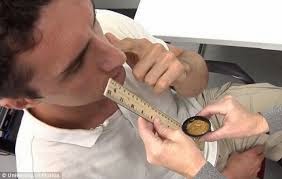(healthy lifestyle changes made with friends are better)
Teens and young adult women are usually quite aware when
they gain even a small amount of weight. This leads to going on fad diets and
diets which promise quick weight loss. Health Briefs looks at how this kind of
dieting later affects the women.
Health and medical experts agree that in order for a young
woman to stay healthy and remain healthy, she needs to make lifestyle changes instead
of going on a fad diet. A study followed women for ten years who reported started
to diet early in youth. The researchers found that 10 years after they were
graduated from college, the women indulged in extreme weight-control behaviors,
more alcohol consumption and misuse, and had a greater chance of being overweight
or obese.
Health Briefs encourages teen girls and young women to seek
the advice of a medical expert before starting any weight loss program. The key
to any successful and long-lasting weight control is to make positive lifestyle
changes. Healthy weight maintenance can be obtained with self control,
lifestyle changes and support from parents, friends and healthcare
professionals. Let’s all work together to give women of all ages the support
they need to life a healthy lifestyle and maintain a positive self image into
adulthood.
***********************************************














